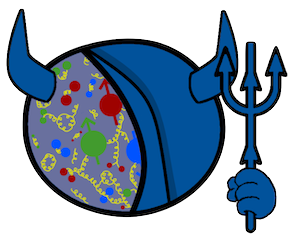Speaker
Description
In non-central heavy-ion collisions, an initial orbital angular momentum carried by two colliding nuclei is partially transferred to the created medium, resulting in polarization of produced particles on average along the direction of the orbital angular momentum. The observation of global polarization opens new directions in the study of heavy-ion physics. Since the discovery of $\Lambda$ global polarization by STAR Collaboration, a lot of progress has been made in both experimental and theoretical sides. Also, non-trivial collective velocity field due to anisotropic flow leads to vorticity, and therefore local polarization, along the beam direction. Theoretical models based on thermal vorticity fail to describe the local polarization in its sign, which is under intense discussion. In this talk, recent results on global and local polarization of hyperons in heavy-ion collisions will be discussed.

